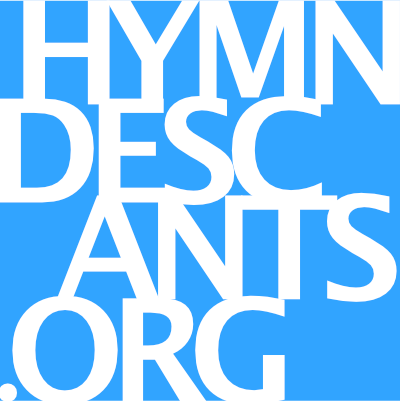Audio includes ad lib prologue and bridge. Each score includes both harmonized descant and separate choir part Free score.
1 hymnal (harm. Lowell Mason)
Lift up your heads, ye mighty gates;
behold, the King of glory waits!
The King of kings is drawing near;
the Savior of the world is here.
2. study: satb a cappella
O blest the land, the city blest,
where Christ the ruler is confessed!
O happy hearts and happy homes
to whom this King of triumph comes!
5 descant
So come, my Sovereign; enter in!
Let new and nobler life begin;
thy Holy Spirit guide us on,
until the glorious crown be won.
The general consensus ascribes TRURO as having been used initially as a setting of "Now to the Lord a noble song," which appeared in Psalmodia Evangelica, a 1789 two-volume collection of psalm and hymn tunes in three parts for "Churches, Chapels, and Dissenting Meetings in England, Scotland, and Ireland," edited by Thomas Williams. The tune is named for the city in Cornwall with its striking Anglican (and strikingly non-dissenting) cathedral. The opening phrase is prominent for it's ascending scale, a nearly-perfect inversion of ANTIOCH ("Joy to the world"), which dates from the same period and is likewise set to an Isaac Watts text. Also making an appearance about the same year, with a hymn set to the same text with a similar (but not identical) three-part tune named TRURO, was A Collection of Psalm Tunes by Isaac Smith. These synoptic variants point to an earlier, anonymous source, and discrepancies in the tune persist to this day, with the British version differing from the American version - the latter eventually harmonized in four parts by Lowell Mason, composer-aggregator of its inversion, ANTIOCH.
Georg Weissel's Macht hoch die Tür, die Tor macht weit (loosely translated into English as "Lift up your heads, ye mighty gates"), comes from a lifetime ouevre of primarily festival hymns, and was first published in the Preussische Fest-Lieder (Prussian Festival Songs) in 1642, marked for the First Sunday of Advent. The Easter text by Brian Wren (b. 1936), Christ is alive! Let Christians sing is a congregational favorite across all denominations, plunging straight into the central mystery of Christian faith and life. This hymn was edited by the poet in 1995.
1. Christ is alive! Let Christians sing.
The cross stands empty to the sky.
Let streets and homes with praises ring.
Love, drowned in death, shall never die.
2. Christ is alive! No longer bound
to distant years in Palestine,
but saving, healing, here and now,
and touching every place and time.
3. In every insult, rift and war,
where color, scorn or wealth divide,
Christ suffers still, yet loves the more,
and lives, where even hope has died.
4. Women and men, in age and youth,
can feel the Spirit, hear the call,
and find the way, the life, the truth,
revealed in Jesus, freed for all.
5. Christ is alive, and comes to bring
good news to this and every age,
till earth and sky and ocean ring
with joy, with justice, love and praise.
Brian Wren
Words © 1995 Hope Publishing Company
Your hymnal may have a previous version, and to use this version you need the standard congregational license as described by Hope Publishing on their licensing page. A separate choral license is required for choristers singing the descant.
Lift up your heads, ye mighty gates
Christ is alive! Let Christians sing
For this Brian Wren text, a separate license will be required for each chorister from Hope Publishing.
hopepublishing.com

